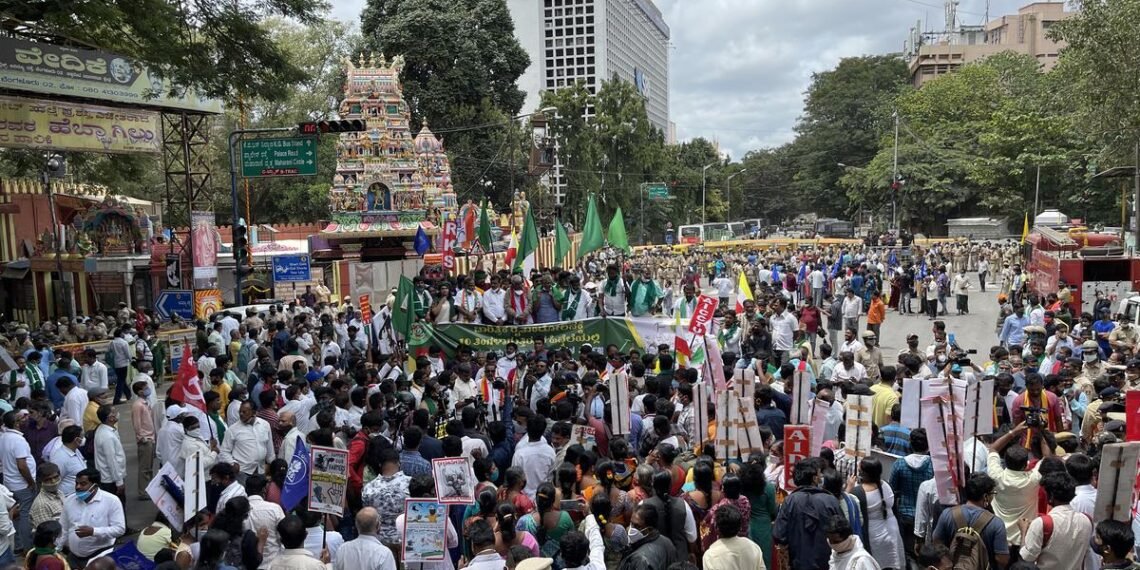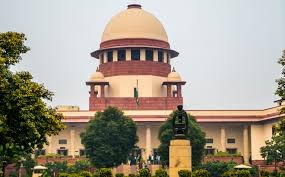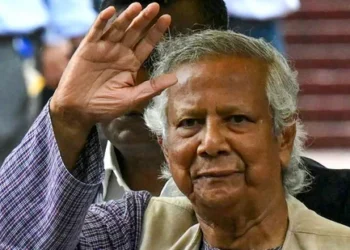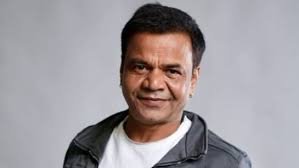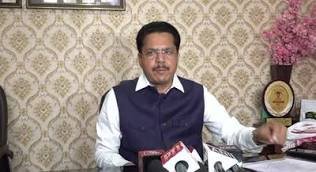India’s Generation Z rises, using social media and street protests to challenge systemic inequities in jobs, education, and political representation.
BY Navin Upadhyay
Post-Nepal unrest, India has witnessed a notable surge in youth-led activism, with Generation Z emerging as a significant socio-political force. The ongoing protests in Ladakh, Dehradun, and Bengaluru illustrate a broader trend of young Indians mobilizing to address governance gaps, economic anxieties, and demands for social justice. Unlike previous generations, Gen Z activists are leveraging digital platforms, global awareness, and grassroots networks to influence policy and public discourse.
Over the past decade, India has witnessed a generational shift in civic engagement, marked by the emergence of Generation Z as a powerful socio-political force. Born between the mid-1990s and early 2010s, this cohort has grown up in a digitally connected, information-saturated world, making them uniquely positioned to observe, critique, and challenge established structures. Unlike previous generations, Gen Z is not constrained by traditional hierarchies; they are adept at using social media, online campaigns, and decentralized organizing to mobilize quickly around issues ranging from climate change to governance failures. Their activism is informed by global movements, yet it is intensely localized, reflecting regional grievances, economic frustrations, and social aspirations.
READ: HC Sets Aside NIA Court Order, Releases Kuki Leader on Bail
Economic insecurity has been a key driver of Gen Z’s activism in India. Despite the country’s high GDP growth and booming technology sector, youth unemployment remains stubbornly high. Reports indicate that millions of young Indians, particularly graduates, are either underemployed or working in precarious jobs with limited prospects. This economic uncertainty has fueled frustration, prompting young citizens to demand systemic reform in employment, recruitment, and labor policies. Gen Z’s protests are therefore not merely symbolic—they are directly linked to their survival, future prospects, and desire for equitable opportunity.
Another critical dimension of this activism is education. India’s traditional education system has struggled to adapt to the changing needs of its youth, particularly in areas like skill development, critical thinking, and global competitiveness. Gen Z, which often views education as a gateway to upward mobility and social status, is increasingly vocal about curricular reforms, infrastructure, and access to quality resources. Student-led protests, petitions, and digital campaigns have become a prominent channel through which young Indians assert their expectations for a system that aligns with their aspirations, blending both academic excellence and employability.
Social consciousness and political awareness also distinguish Gen Z’s activism from earlier youth movements. With widespread access to news, social media, and global discourse, they are highly sensitive to issues of equity, justice, and representation. From climate policy to minority rights, this generation demonstrates a willingness to question institutional failures and challenge authority when their voices are marginalized. Their protests are intersectional, often linking local grievances with broader structural inequities, demonstrating a nuanced understanding of systemic issues and long-term societal change.
Regional Protests: Ladakh, Dehradun, and Bengaluru
Ladakh: Ethno-Political Assertion
Today my heart is very heavy.
Ladakh has always been a peaceful and calm place where people from all over India come to feel safe. But today we are seeing violence we have never seen before.It hurts deeply to know that four people have died and many are injured, including a few… pic.twitter.com/y1xukQUni3
— Hassina Banoo 🇮🇳 (@HBjournalist) September 24, 2025
The protests in Ladakh exemplify Gen Z’s engagement with regional political identity. Activist Sonam Wangchuk led youth demonstrations demanding statehood recognition under the Sixth Schedule of the Indian Constitution, aimed at preserving tribal autonomy and environmental safeguards. Escalating into violent clashes, the protests left four dead and over 80 injured, underscoring the intensity of frustration among the region’s youth. The protests reveal Gen Z’s capacity to frame long-term political demands around autonomy, resource protection, and governance accountability, reflecting a sophisticated understanding of systemic inequities tied to regional history and identity politics.
Dehradun: Education as a Catalyst
LADAKH PROTESTS ‼️
The youth of Ladakh are showing the path ahead.
They reject BJP’s divisive tactics and polarization.
Time to Emulate Ladakh:
PRIORITIZE BEING INDIAN ABOVE EVERYTHING ELSE.
REMAIN HUMAN FIRST. #LadakhProtests #LadakhViolence #LadakhStatehood… pic.twitter.com/dDg9UZP0qP
— 🥇 Pragnya Gupta (@GuptaPragnya) September 26, 2025
In Dehradun, the youth have mobilized to demand reforms in the educational system. Students have protested outdated curricula, insufficient infrastructure, and teaching methodologies that do not match global standards. These protests are not only about immediate grievances but reflect a broader awareness among Gen Z that education is a critical driver of social mobility and economic opportunity. Their activism demonstrates the generation’s proactive approach—leveraging digital platforms to organize, amplify, and sustain campaigns while maintaining pressure on policymakers to enact meaningful reforms.
Bengaluru: Employment and Civic Engagement
Massive student protest in Bengaluru as thousands demand the government conduct job exams without delay. The demonstration highlights the growing frustration across India over the youth unemployment crisis. #BengaluruProtest #WeWantJobs #Unemployment pic.twitter.com/OHXjQ3dJjd
— Statements.in (@Statementsdo_in) September 26, 2025
Bengaluru has seen youth-led protests centered on employment opportunities, particularly in the public sector, and broader demands for civic accountability. Delays in government recruitment, including positions in police and civil services, have fueled large-scale mobilizations by students and young professionals. These demonstrations also emphasize governance transparency, reflecting Gen Z’s insistence on active participation in policymaking and urban development. The protests indicate a generation that understands the link between economic security, institutional accountability, and their role as engaged citizens shaping urban and national policy.
READ: Voice of Ladakh Wangchuk Arrested for Inciting Mob Violence
Common Themes and Drivers
Across these regions, three common drivers are evident: economic anxiety, educational aspirations, and political consciousness. Gen Z’s activism reflects dissatisfaction with structural inefficiencies and a demand for a responsive system. Digital fluency allows them to amplify grievances, coordinate actions, and influence public opinion at unprecedented speed. Furthermore, the generation’s protests are intersectional, linking economic, educational, and political concerns into coherent narratives that demand systemic change rather than superficial concessions.
The rise of Gen Z activism presents both challenges and opportunities for India’s governance. Authorities face a generation that is informed, organized, and unafraid to challenge institutional norms. Governments must consider proactive engagement strategies that address employment, education, and political representation. Ignoring youth demands risks social unrest, while responsive policy interventions could harness this energy for constructive nation-building. Gen Z is not merely protesting—they are shaping the future political and civic discourse of India.



